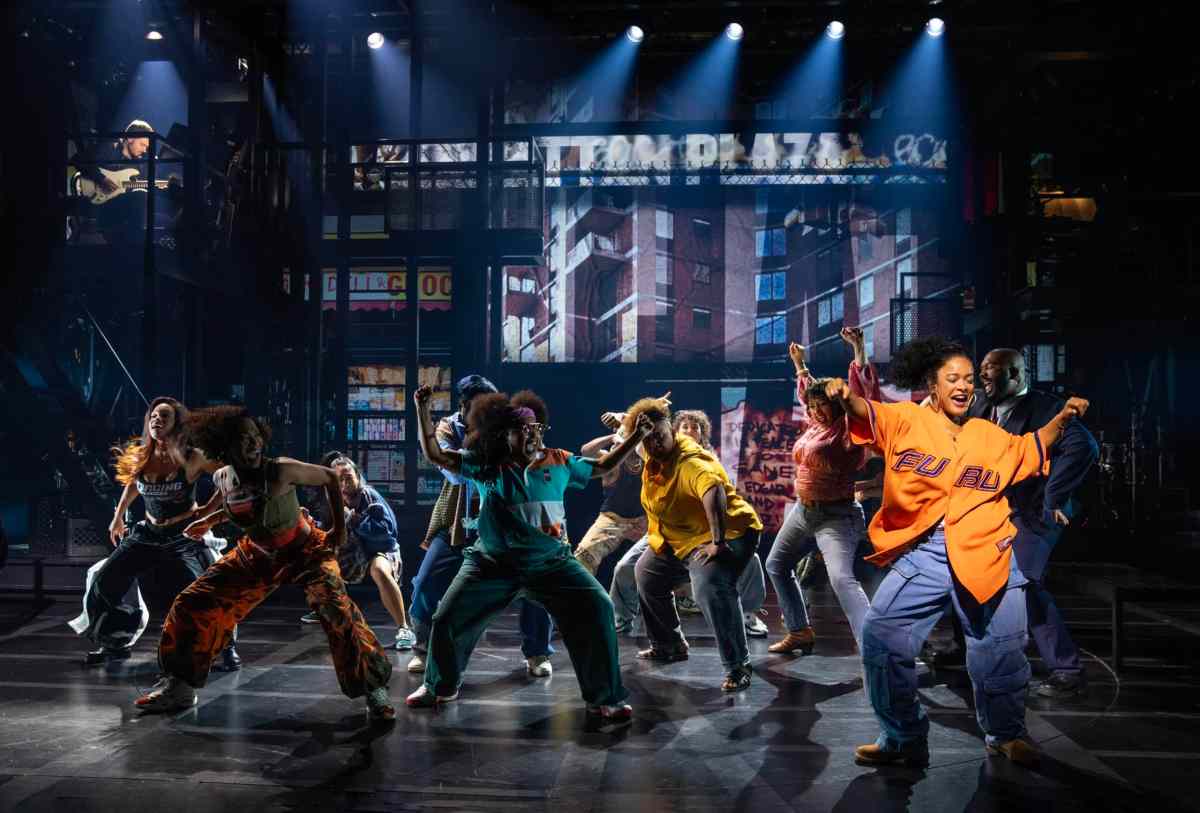In spite of serious concerns about the economic health of Off-Broadway in the post-pandemic environment, there have been an impressively large number of high-profile shows this fall, including a new Alicia Keys musical at the Public Theater, the stage debut of Aubrey Plaza in a challenging relationship drama, a forgotten musical that originally featured an unknown Barbra Streisand, and a new drama depicting the recording session of a 1970s rock band.
Hell’s Kitchen
Even the Public Theater is not immune to doing jukebox musicals. Five years after staging a musical drama built around songs by Bob Dylan, it is now presenting the world premiere of an Alicia Keys musical, which is inspired by the music artist’s teen years growing up in Hell’s Kitchen. The score combines Keys’ previously recorded hits with a handful of new songs.
As directed by Michael Greif (“Rent,” “Next to Normal”), “Hell’s Kitchen” has a lot going for it, including Keys’ well-crafted R&B songs (most of which I had been unfamiliar with), a vibrant cast that includes Kecia Lewis and Brandon Victor Dixon, Camille A. Brown’s dynamic ensemble choreography, and a refreshingly feel-good depiction of New York (culminating in a finale rendition of “Empire State of Mind”).
But if the show is to transfer to Broadway (as rumors suggest), playwright Kristoffer Diaz needs to make the coming-of-age narrative (which often wanders among scattered mini-dramas involving the female protagonist) tighter and less reliant on confessional first-person narration.
Through Jan. 14 at the Public Theater, publictheater.org.
Danny and the Deep Blue Sea
For her stage debut, Aubrey Plaza (“The White Lotus,” “Parks and Recreation”) probably should have chosen something less demanding than John Patrick Shanley’s intense 1983 two-hander, in which an emotionally shattered and aggressive man and woman meet in a Bronx dive bar, spend the night together, and ponder whether they can sustain a real relationship and save each other.

Unless the two actors in the play truly connect and emit a raw, visceral intensity, it really doesn’t work. Christopher Abbott (“Girls”) evokes the vitality and sense of being out-of-control and in need that are missing from Plaza’s performance, which relies on a guarded front and feels fake. Perhaps the production will come together as it continues its limited run in the West Village.
Through Jan. 13 at the Lucille Lortel Theatre, dannyandthedeepbluesea.com.
I Can Get It For You Wholesale
This 1962 Broadway musical, which has a shameless antihero protagonist and is set among a Jewish population in the Garment District during the Depression, is best remembered today for the fact that the original cast included a 19-year-old Barbra Streisand (whose performance in a minor role is preserved on the original cast album). However, its score (by the once prominent, now forgotten Harold Rome) is often poignant and specific to character and culture.
Classic Stage Company’s rare revival incorporates book revisions by John Weidman (whose father, Jerome Weidman, wrote the original book) and showcases a Broadway-caliber cast that includes Santino Fontana, Judy Kuhn, Sarah Steele, Julia Lester, and Adam Chanler-Berat. Even if it does not ultimately come together (and the score requires a larger orchestra), it is a polished production of a dark and intriguing musical that deserves to be seen more often.
Through Dec. 17 at Classic Stage Company, classicstage.org.
Stereophonic
Over the course of three hours and 20 minutes, David Adjmi’s new drama (which has songs by Will Butler of Arcade Fire) dramatizes the time and labor-intensive recording sessions of a chart-topping rock band in the 1970s. It is a work of detailed naturalism, full of stops and starts in both the conversions and the songs. Even if one finds the play to be overlong and lacking in plot, Daniel Aukin’s production (which features live musical performances from an onstage, sealed-off recording booth) is undeniably outstanding.

Through Dec. 17 at Playwrights Horizons, playwrightshorizons.org.
Read more: Ex-Obama Staffer Arrested for Harassing Halal Vendor in NYC


































